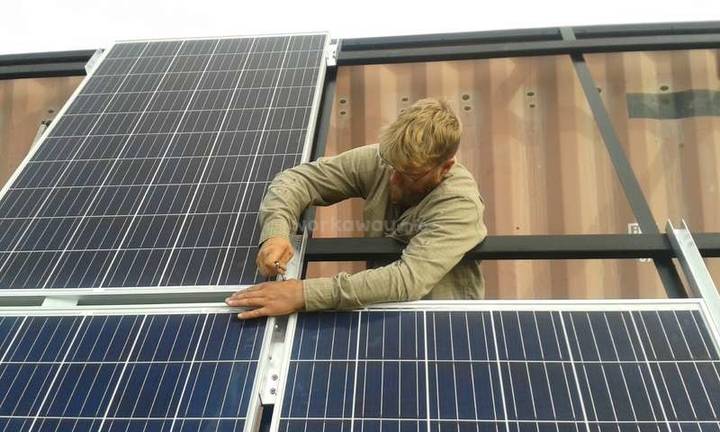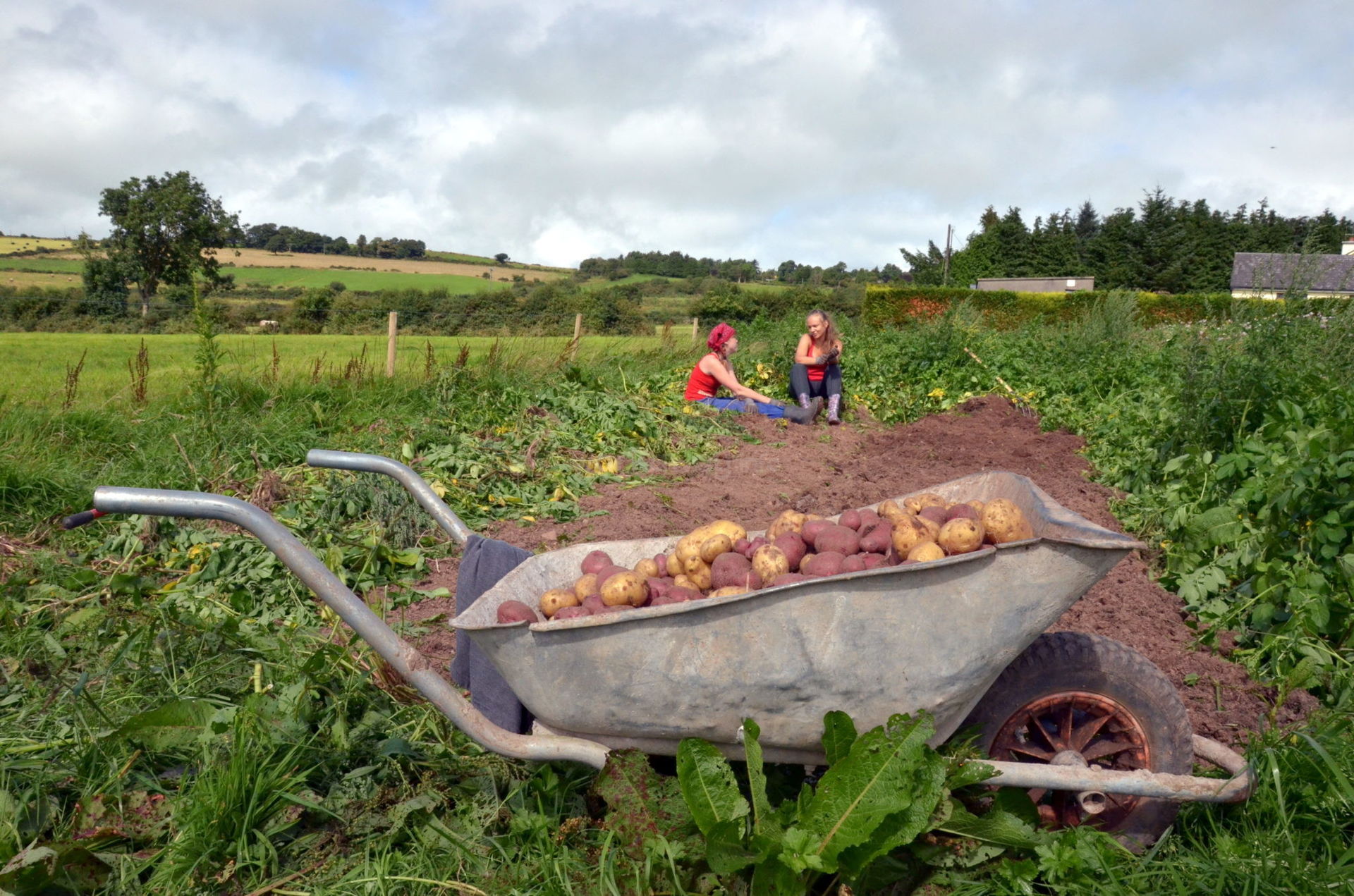Going green on your Workaway: Permaculture living – Part Two
In the second part of our discussion about permaculture, Jo talks about the types of volunteering work you might expect to be doing as a host, and also some more thoughts on the philosophy behind permaculture. Here’s the link to the 1st part if you missed it.
Reskilling Through Permaculture
Over the last few decades we have become increasingly busy outside the home, leading to the loss of many traditional skills including things that used to be considered basic educational requirements, such as picking, harvesting and processing food.
A permaculture approach values the recovery of these skills, and there are many Workaway hosts offering to teach volunteers how to make cheese, cure meat, etc.
This host from Nostimo, Greece offers prospective volunteers the chance to learn all sorts of things, including making soap and how to preserve food in a variety of ways.
Design Approaches
As permaculture is based on three ethical principles plus the observation of nature, rather than a set of rules, most projects start from a design process that is local and needs based. Larger projects will have designs in place that will help you to understand the overall plan for the project, whereas smaller gardens may be more exploratory in approach.
It is hard to predict what sort of work will be required, however you can expect to do a lot of mulching in addition to the usual gardening jobs. (What forest have you ever seen with bare earth?) Some practitioners operate a no-dig system of cultivation, others create beautifully shaped mandala gardens with raised beds and lots of curved borders, providing lots of edge and creating different micro-climates… and involving lots of digging, at least at the beginning!

Permaculture host in Loja Province, Ecuador
Permaculture doesn’t follow any single approach or set of laws; rather it is a pragmatic solution that looks to adapt a human response to the region, climate and amount of energy available. But permaculture practitioners use a variety of approaches to agriculture, and on this off-grid farm in Ecuador volunteers can learn about biodynamic and traditional farming methods as well as permaculture.
Low Energy Consumption
Expect compost loos, solar water heating, accommodation that relies on renewable energy for electricity… permaculture practitioners don’t necessarily seek to be self-sufficient, but they do aim at low energy throughputs.
Methods include reducing their resource use through recycling, reusing the resources they bring in and seeking resilience through the use of renewable energy sources. In every case they will be using oil with great care.

Building solar panels for sustainable and energy-efficient living. Photo by host Mike from Australia
Even in cities you will find responses such as shared cars and community transport initiatives, solar water heating, etc. Permaculture homes are often very comfortable, but you may not be able to use your hairdryer (!), and you may need to charge your mobile in the hours of daylight. If in doubt, ask your host about the limitations of their systems, and above all enjoy the exploration of what the future might look like when we seriously try to lower our carbon emissions.
Community Building
Permaculture has a lot to teach about organising community as well as agriculture, and in fact the growing transition movement sprang from permaculture seeds. Except for the most isolated hosts, you are likely to find that permaculture projects are well networked and that hosts are committed to connecting and working with their community.
In the Workaway list you will find an eco-kibbutz and a Palestinian community, both using permaculture principles in their work, along with many other intentional communities. Many hosts in the developing world are using permaculture principles to raise people from poverty and help make them self sufficient in a sustainable way. There are hosts working at transition village scale, and even hosts connected to international movements, like this farming organisation in Kenya which is working to empower communities through permaculture.

Volunteers with Abraham, a permaculture teacher and host in Rangwe, Kenya
Wherever you decide to go, your hosts will almost certainly be actively involved in setting up new community projects, working within the transition movement, exploring in diverse and holistic ways how to create a more sustainable future.

Whether the hosts are seeking input from artists, healers and educators, or extra hands to help with general work, one thing is sure, the focus will be local and ethical, and will involve communicating with people who are eager to share their ideas about alternative ways of guaranteeing a great future for the next seven generations. 🌿
Why not join the community?
About Jo
Originally from the UK and now based in Spain, Jo is a Workaway host and permaculture enthusiast. She has been dabbling in permaculture for many years, and organises various permaculture and natural b
Share the Workaway idea
2 comments
Join the Workaway community today to unlock unique volunteer experiences and free accommodation with over 50,000 opportunities around the globe.
Join Now






